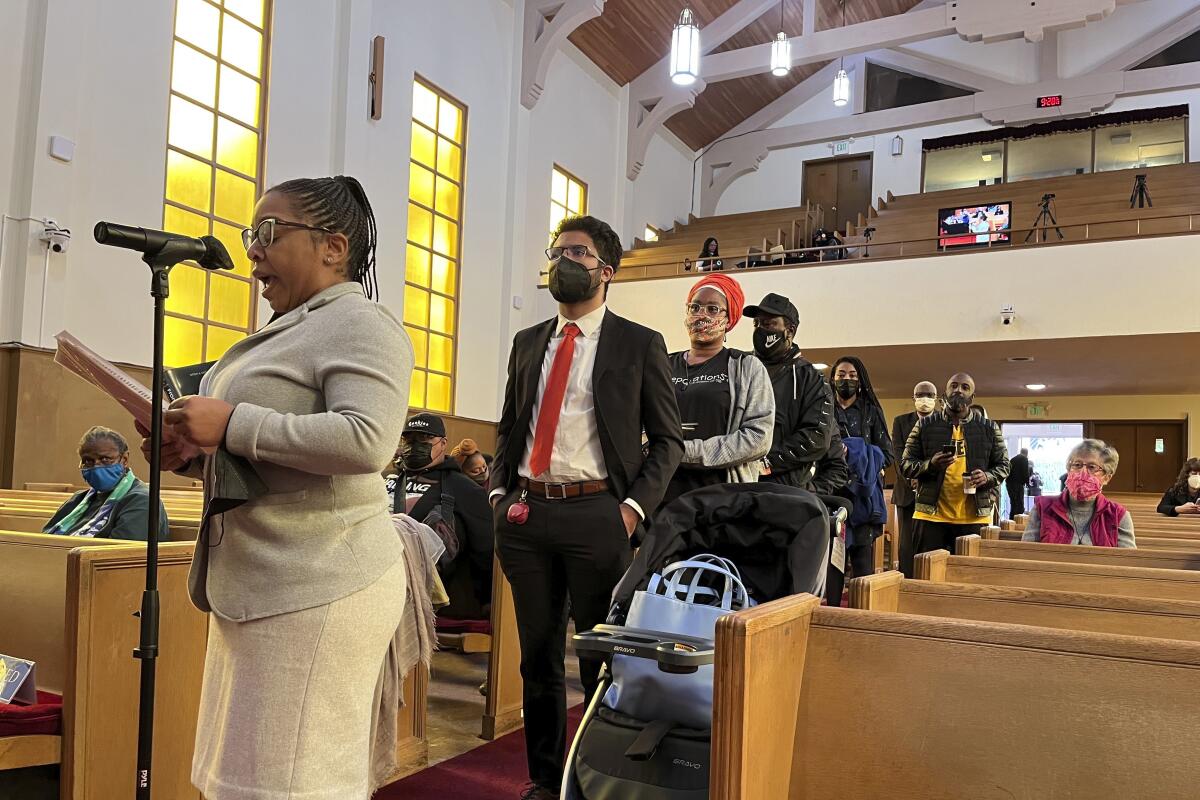Letters to the Editor: The grim facts of history demand reparations for Black Californians

- Share via
To the editor: Thank you for the editorial regarding America’s indebtedness to Black people and the legitimate pursuit of reparations on behalf of African Americans. It is critical for the public to understand that recompense is being sought not only for slavery itself, but also for its horrendous aftermath.
As stressed by the report issued by the Task Force to Study and Develop Reparation Proposals for African Americans, “So thoroughly have the effects of slavery infected every aspect of American society over the last 400 years that it is nearly impossible to ... describe every harm done to African Americans.”
So that we may have a well-informed public that appreciates the inequities and atrocities that have been visited upon African Americans over several decades in California, I request that The Times extract relevant historical facts from the task force’s report and publish them over several weeks.
This will leave little doubt as to the authenticity of Black complaints and underscore the entitlement of African Americans to redress that has long been sought.
Legrand H. Clegg II, Compton
..
To the editor: The editorial states that Homestead Act land was almost free for white families but ignores the reason for this bargain — the land had been stolen from Native Americans. However, this massive crime isn’t mentioned.
While Native Americans are also aggrieved, their plight is overlooked because their numbers are fewer due to “Indian” extermination. And Native Americans tend to live in remote places, farther from the halls of power.
Furthermore, the African American plight is largely seen as a product of the Confederate South. Victors write our histories, and harm against Native Americans was largely inflicted by our own country.
For example, the Tongva people, who inhabited the Los Angeles Basin for thousands of years, were first enslaved by the Spanish and Mexican governments and then further abused by our own government. Now, Tongva people have been waiting decades simply for the protection and benefits of federal tribal recognition. Will they ever get it?
Reparations for historical wrongs are morally correct, but let us not exclude Native Americans from that justice.
Brian Roberts, Covina
..
To the editor: Given that there is a basic humanitarian need to financially assist those members of society who bear the scars of slavery, why should California taxpayers lead the way?
In school, I was taught that when California became a state, it was a “free state.” The descendants of slaves in California had ancestors who migrated here from all over the United States. This is a national issue, not a California issue.
For the life of me I cannot see why California taxpayers have a financial obligation to these descendants of slaves. What am I missing?
James R. Helms Jr., Arcadia
..
To the editor: Before California pays reparations, the governor and state legislators should obtain a detailed analysis of the impact of the Supreme Court decision that race cannot be used in college admissions.
If the Constitution’s Equal Protection Clause does not allow the use of race in determining who can get into school, it seems very unlikely that it allows the use of race to determine the distribution of money, land or whatever else is used to pay reparations.
Stephanie Scher, Los Angeles






